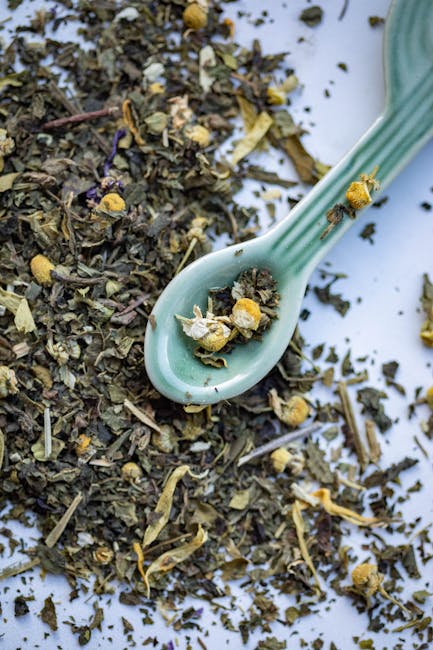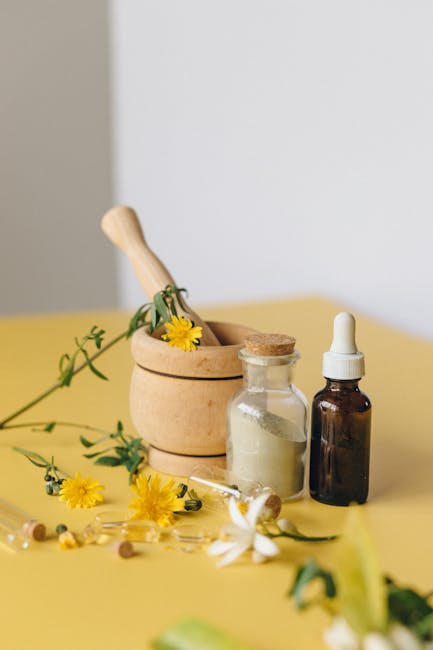Phytotherapy offers a natural approach to managing prostate concerns, utilizing plant-based remedies that have been shown to promote prostate health. You may find that certain herbs and botanical extracts can help alleviate symptoms associated with benign prostatic hyperplasia (BPH) and other prostate-related issues. By incorporating these therapies into your wellness routine, you can potentially enhance your quality of life and support prostate function. This article will explore various phytotherapeutic options and how they can benefit your prostate health.

Understanding Prostate Concerns
Your prostate health is an important aspect of your overall well-being, as it directly affects your urinary and sexual function. Prostate concerns often arise due to age-related changes, genetic predisposition, and lifestyle factors, necessitating a greater awareness of common issues and their implications for your health.
Common Prostate Issues
The most prevalent prostate issues include benign prostatic hyperplasia (BPH), prostatitis, and prostate cancer. BPH is characterized by an enlarged prostate, leading to discomfort and urinary difficulties. Prostatitis involves inflammation of the prostate, whereas prostate cancer can present various challenges, making it crucial to stay informed about your prostate health.
Symptoms and Diagnosis
Across the spectrum of prostate conditions, symptoms may vary significantly, impacting your quality of life. Common signs include frequent urination, difficulty starting or stopping urination, painful urination, and lower back pain. Identifying these symptoms early can lead to timely medical intervention, and healthcare professionals may employ physical exams, blood tests, or imaging studies to diagnose underlying issues accurately.
Even subtle changes in urinary habits warrant your attention; they could indicate serious conditions that require prompt evaluation. Regular screenings and discussions with your healthcare provider can help you monitor your prostate health effectively, ensuring that potential concerns are addressed before they escalate.
What is Phytotherapy?
One approach to addressing health concerns is through phytotherapy, the use of plants and their extracts for therapeutic purposes. This practice has gained attention for its potential in treating conditions like prostate issues. For instance, you can explore 6 Natural Remedies for Enlarged Prostate (BPH) that highlight natural options available to you.
Definition and Overview
After many years of study, phytotherapy is defined as the treatment of ailments using medicinal plants. It encompasses a wide range of therapies, including herbal medicine, plant extracts, and various preparations that utilize the healing properties of botanical elements.
Historical Context in Medicine
What you may find fascinating is the historical roots of phytotherapy, dating back thousands of years. Ancient civilizations utilized plants for their healing properties, creating a foundation for modern herbal practices.
This time-honored approach has been documented in various cultures, from the Chinese and Egyptian to Greek medicine. Your ancestors relied on herbal remedies long before the advent of pharmaceuticals, ensuring that plant-based treatments have an enduring place in the landscape of healthcare. Today, the resurgence of interest in natural remedies revives these ancient practices, validating their relevance in contemporary wellness discussions.

Key Phytotherapeutic Agents
While exploring potential solutions for prostate concerns, various phytotherapeutic agents have garnered attention for their efficacy and safety. These natural remedies, rooted in herbal medicine, can provide support in managing symptoms associated with prostate health. Understanding these agents allows you to make informed choices about incorporating them into your wellness regimen.
Saw Palmetto
Against the backdrop of prostate issues, Saw Palmetto is often recommended for its ability to support urinary health and potentially reduce enlarged prostate symptoms. This herb works by influencing hormone levels, which can promote a balance that helps alleviate discomfort.
Pygeum Africanum
Along with Saw Palmetto, Pygeum Africanum has shown promise in improving prostate health. This extract from the African plum tree is beneficial in reducing inflammation and promoting urinary function.
In fact, studies have demonstrated that Pygeum Africanum can effectively help diminish nocturnal urination and improve overall urinary flow, making it a valuable addition to your health routine. When considering supplements, this herb’s long-standing use in traditional medicine highlights its potential to support your prostate health comprehensively.
Stinging Nettle
To further enhance your understanding of prostate support, Stinging Nettle is another potent herb that can assist in managing symptoms related to urinary function. Known for its anti-inflammatory properties, it may help alleviate discomfort and promote overall prostate health.
At the same time, Stinging Nettle works synergistically with other herbs, such as Saw Palmetto, to ensure comprehensive support for your prostate. Incorporating this herb into your arsenal can provide a multifaceted approach to improving urinary issues, allowing you to enjoy a better quality of life.
Mechanisms of Action
Once again, understanding how phytotherapy alleviates prostate concerns requires a look at its underlying mechanisms. Various phytotherapeutic agents promote health through multiple pathways, including anti-inflammatory, antioxidant effects, and hormonal regulation. A detailed analysis of these mechanisms can be found in the article Phytotherapy of Benign Prostatic Hyperplasia. A Minireview. Each of these actions contributes to improving prostate health and alleviating symptoms associated with prostate conditions.
Anti-inflammatory Properties
Properties of phytotherapy, particularly in the context of prostate health, focus on their anti-inflammatory effects. Such properties help reduce inflammation in the prostate, which can lead to swelling and discomfort. By targeting inflammatory pathways, phytotherapeutic agents can assist in alleviating symptoms and improving overall prostate function.
Hormonal Regulation
Against the backdrop of prostate concerns, hormonal regulation plays a significant role in maintaining prostate health. Phytotherapy can influence the balance of hormones like testosterone and dihydrotestosterone (DHT), which are pivotal in prostate enlargement and other related issues. By modulating these hormones, certain plant-based therapies may help you achieve better hormonal balance, thereby reducing the risk of complications associated with prostate conditions.
Further, specific phytotherapeutic agents can act on the hormonal pathways that govern prostate function, potentially lowering DHT levels and mitigating the effects of testosterone. This hormonal regulation is necessary for managing benign prostatic hyperplasia (BPH) and other prostate disorders. Utilizing these natural remedies could aid in maintaining hormonal equilibrium, supporting your prostate health effectively.
Research and Efficacy
Unlike conventional treatments for prostate concerns, phytotherapy often presents a gentler approach, utilizing plant-derived compounds to support prostate health. Emerging studies indicate that natural remedies, such as saw palmetto and pygeum, may help alleviate symptoms associated with benign prostatic hyperplasia (BPH) and improve overall well-being. However, it’s important to explore the extensive research backing these therapies and understand their place in a comprehensive treatment plan.
Clinical Studies and Findings
Above all, multiple clinical studies have documented the benefits of phytotherapy in managing prostate issues. Research suggests that certain herbal ingredients can positively affect urinary function and reduce inflammation, leading to improved patient outcomes. Many individuals report increased satisfaction with their symptoms when incorporating these natural remedies into their health regimen.
Limitations and Considerations
Across various studies, it is vital to acknowledge that not all herbal treatments are universally effective for everyone. Individual responses can vary widely, and some may experience minimal benefits or even adverse effects. Additionally, the quality and concentration of herbal supplements can differ, emphasizing the importance of consulting with a healthcare professional tailored to your specific needs.
For instance, while some individuals may find relief from symptoms through herbal remedies, others might see no improvement at all. The lack of standardization in supplement formulations can complicate matters further. It is important for you to stay informed and approach phytotherapy with caution, discussing your options with a qualified expert to choose the right path for your prostate health.
Integrating Phytotherapy into Treatment
All approaches to alleviating prostate concerns can benefit from the integration of phytotherapy. By incorporating herbal remedies alongside conventional treatments, you can enhance your overall well-being. It is necessary to choose the right herbs based on your specific symptoms and discuss them with a qualified healthcare provider. This combination allows for a more holistic approach to managing prostate health.
Consultation with Healthcare Providers
An important step in integrating phytotherapy into your treatment plan is consulting with healthcare providers. Discuss your interest in herbal remedies with your doctor, especially if you are already undergoing conventional treatments. Your provider can help assess any potential interactions, ensuring a safer and more effective approach to your prostate concerns.
Dosage and Formulations
Besides seeking professional advice, understanding the appropriate dosage and formulations of phytotherapy is vital. Each herb or supplement can provide different benefits depending on its concentration and form, such as teas, capsules, or tinctures.
The effectiveness of phytotherapy greatly hinges on the correct dosage and formulation tailored to your specific needs. Herbs like saw palmetto and pygeum can offer support, but their efficacy can vary by preparation type. It is advisable to follow the recommended guidelines or professional advice, as excessive dosages may lead to adverse effects. Ultimately, consistency in taking these remedies, as advised by a healthcare provider, will yield the best results in your treatment journey.
Conclusion
With this in mind, exploring phytotherapy can offer you alternative avenues to manage prostate concerns effectively. By incorporating specific herbs and natural remedies into your wellness routine, you can support prostate health and alleviate symptoms associated with conditions like benign prostatic hyperplasia and prostatitis. It’s important to consult with a healthcare professional to tailor a treatment plan that suits your individual needs, ensuring the best possible outcomes for your prostate health.
Q: What is phytotherapy and how does it relate to prostate health?
A: Phytotherapy refers to the use of plant-based medicines for therapeutic purposes. In relation to prostate health, certain herbs and plant extracts have shown potential benefits in managing prostate concerns, such as benign prostatic hyperplasia (BPH) and prostate inflammation. For example, saw palmetto, a commonly used supplement, is believed to help reduce urinary symptoms related to an enlarged prostate by inhibiting the conversion of testosterone into dihydrotestosterone (DHT), a hormone linked to prostate enlargement.
Q: What specific herbs are commonly used in phytotherapy for prostate issues?
A: Several herbs have gained popularity in treating prostate concerns through phytotherapy. Saw palmetto is one of the most researched and used for alleviating symptoms of BPH. Other notable herbs include pygeum africanum, which is derived from the bark of an African prune tree and may help improve urinary function, and stinging nettle, which is often used in combination with saw palmetto to support urinary tract health. These herbs contain various compounds that can influence hormonal balance and inflammation, potentially benefitting prostate health.
Q: Are there any risks or side effects associated with using phytotherapy for prostate concerns?
A: While phytotherapy is generally considered safe for most individuals, it is important to be aware of potential side effects and interactions with other medications. Some individuals may experience gastrointestinal discomfort or allergic reactions to certain herbs. Additionally, because herbal supplements are not strictly regulated, the quality and concentration may vary significantly between products. It’s advisable to consult a healthcare professional before starting any new herbal regimen to ensure it’s appropriate for your specific health needs and conditions.











